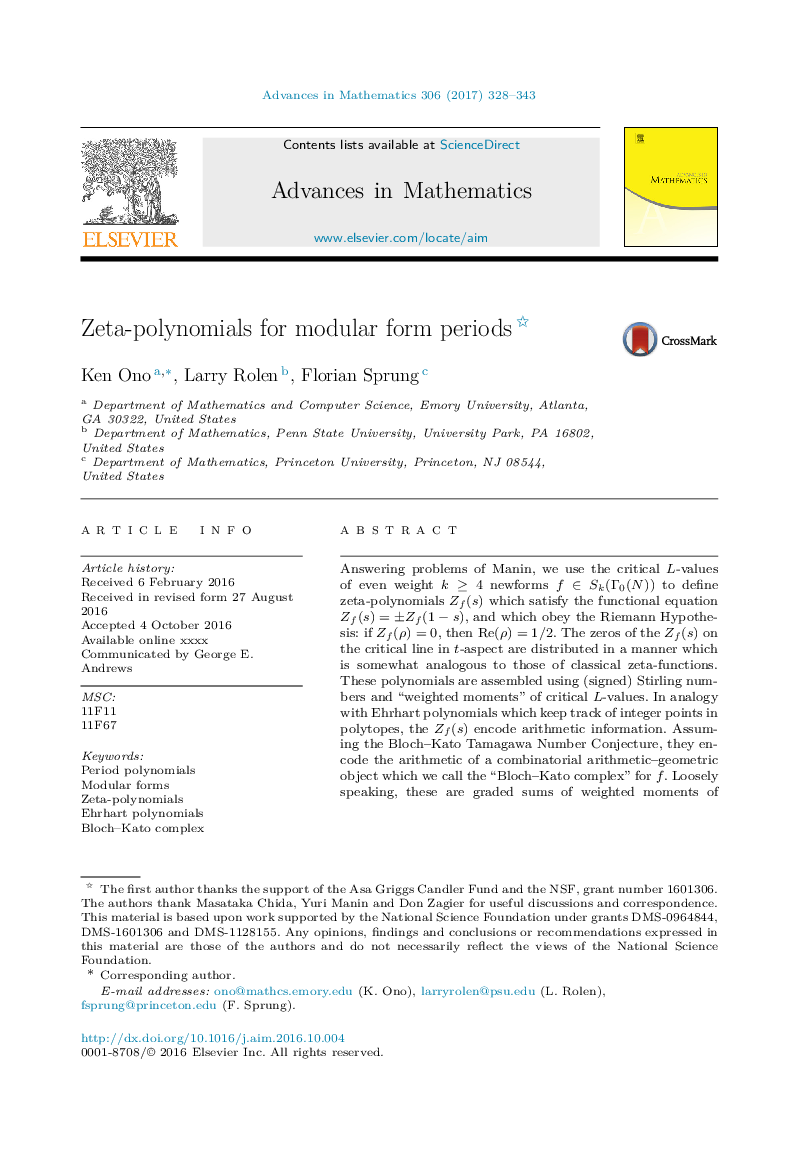| Article ID | Journal | Published Year | Pages | File Type |
|---|---|---|---|---|
| 4665016 | Advances in Mathematics | 2017 | 16 Pages |
Abstract
Answering problems of Manin, we use the critical L-values of even weight kâ¥4 newforms fâSk(Î0(N)) to define zeta-polynomials Zf(s) which satisfy the functional equation Zf(s)=±Zf(1âs), and which obey the Riemann Hypothesis: if Zf(Ï)=0, then Re(Ï)=1/2. The zeros of the Zf(s) on the critical line in t-aspect are distributed in a manner which is somewhat analogous to those of classical zeta-functions. These polynomials are assembled using (signed) Stirling numbers and “weighted moments” of critical L-values. In analogy with Ehrhart polynomials which keep track of integer points in polytopes, the Zf(s) encode arithmetic information. Assuming the Bloch-Kato Tamagawa Number Conjecture, they encode the arithmetic of a combinatorial arithmetic-geometric object which we call the “Bloch-Kato complex” for f. Loosely speaking, these are graded sums of weighted moments of orders of Å afareviÄ-Tate groups associated to the Tate twists of the modular motives.
Related Topics
Physical Sciences and Engineering
Mathematics
Mathematics (General)
Authors
Ken Ono, Larry Rolen, Florian Sprung,
